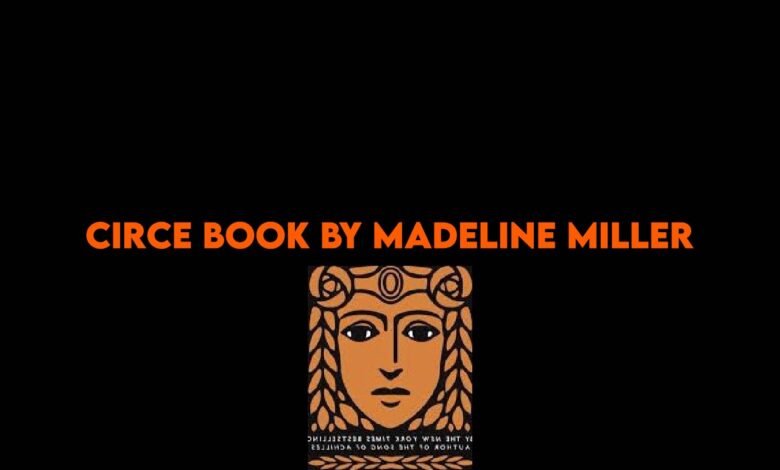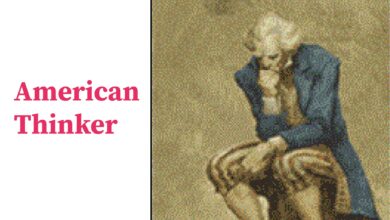Review: Circe Book by Madeline Miller

Circe Book by Madeline Miller is an enchanting modern retelling of Greek mythology, placing the lesser known goddess Circe at the center of her own story. Known in Homer’s Odyssey primarily for transforming Odysseus’s men into swine, Circe is often portrayed as a minor character. Miller, however, reconstructs Circe’s journey, giving her voice and agency, making it a profound narrative of resilience, empowerment, and self discovery.
Introduction to Circe: A New Heroine in Greek Mythology
Circe, born to Helios, the mighty god of the sun, and the nymph Perse, starts her life on the fringes of the divine world. From her earliest years, her family’s disregard is painfully clear she lacks the typical allure and godly powers that set her relatives apart. Her voice is distinct, her looks plain, and her powers seem limited, almost human, marking her as an outlier among gods.
But Circe soon finds a strength all her own. She dives into witchcraft, discovering talents that are unique to her. In a moment of anger and jealousy, she transforms her rival, the nymph Scylla, into a monstrous sea creature.
This bold use of her powers leads to her banishment by Zeus, who exiles her to the island of Aiaia. Yet, this banishment becomes a turning point for Circe, freeing her to carve out her own identity, far from the constraints of her family and the cold, demanding world of the gods.
Circe’s Journey of Self Discovery and Isolation
Your analysis captures the essence of Circe’s journey beautifully, emphasizing the duality of Aiaia as both a refuge and a cage. This island setting indeed serves as a potent metaphor for the isolation and self discovery that define Circe’s transformation. By being exiled, Circe is freed from the social constraints of her divine family, allowing her to cultivate her unique talents in herbalism and witchcraft away from the watchful eyes of judgmental gods and titans.
Aiaia thus becomes a reflection of her internal struggles: while it grants her autonomy, it also starkly highlights her loneliness. Madeline Miller skillfully intertwines this setting with Circe’s evolving identity, showing how she uses her isolation not just to survive, but to redefine herself beyond what her lineage dictates.
This exploration of solitude highlights the bittersweet nature of independence empowering yet steeped in longing a tension that shapes Circe’s character arc. Miller’s depiction of Circe Book makes her relatable in her vulnerability and strength, capturing the timeless allure of mythic reinvention that resonates with modern readers.
Encounters with Mortals and Gods
In Circe Book, Madeline Miller reimagines the titular character’s life on the island of Aiaia as a series of transformative encounters with both mortals and gods, shaping her beyond the archetype found in The Odyssey. Figures like Hermes, Daedalus, Jason, and Medea cross her path, each interaction adding depth to her character and highlighting her capacity for empathy a rare quality among the gods.
The novel’s most profound exploration of Circe’s humanity, however, is through her relationship with Odysseus. Unlike Homer’s brief, almost emblematic portrayal, Miller’s Circe is rendered with profound inner life; she is not merely a figure in Odysseus’ journey but a protagonist grappling with love, loss, and mortality.
This narrative shift elevates her from a one dimensional enchantress to a character who bridges the divine and mortal realms, giving her a voice and agency that underscore her personal growth. Through her nuanced portrayal, Miller presents Circe as a figure suspended between two worlds, constantly challenging her identity and her place within them.
Circe’s Exploration of Power and Identity
Miller further delves into the protagonist’s struggle for self identity in Circe. This Book is not strong the way her father Helios is, with his great power that drives all those around him mad; she does not inspire in men such longing and madness as do nymphs.
Circe comes to possess powers of a Witch at various points in the novel which become markers and symbols for her moves toward agency, not simply mastering (or learning how) she can use them but accepting that they are or exist within her even though it angers the gods. While Circe Book has always been a bewitching sorceress of sorts, the empowerment theme is diverging from traditional myth.
Miller’s Circe is a coming of age story where her transformation occurs not through magic but introspection, what it means to be a woman, how we navigate the choices before us and their aftermath. The more she practices her skill the better she becomes at figuring out who and what she is, embracing both with all due vulnerabilities, flaws as well as strengths. In the end, she is a divinity born not of blood but through her own decisions and perseverance and free spirit.
A Feminist Perspective on Greek Mythology
In Circe, Miller doesn’t just retell an old myth but turns it inside out, challenging the roles Greek myths traditionally hand to women. This Circe isn’t the usual passive character we often see in ancient stories, subject to the whims of men and gods alike. Instead, she owns her tale from start to finish, no longer just a footnote in Odysseus’s saga. With layers of independence and defiance, Miller reshapes her into a figure of feminist resilience, someone who stands on her own terms.
For today’s readers, Circe’s journey strikes a deep chord because she faces struggles that feel all too familiar: societal pressures, male authority, and a relentless fight for self determination. Her choice to defy the gods and her fierce dedication to her child no matter the risks adds another layer, portraying her as a mother and protector. In Miller’s telling, Circe isn’t purely mortal or divine but a blend of both, navigating a world where her voice is frequently muffled but never lost.
The Impact of Mortality on an Immortal
In Circe, Madeline Miller weaves mortality as a key theme that profoundly shapes Circe’s journey, casting new light on the nature of immortality and its limitations. Circe’s intrigue with humans begins with her love for Glaucos and deepens as she encounters other mortals, gradually revealing the unique beauty of a life bound by time.
Unlike the gods, whose endless existence makes them detached and indifferent, humans possess a depth of feeling that Circe comes to admire, particularly in Odysseus, whose mortality gives his choices and actions a poignant weight.
Circe’s evolving understanding of mortality reaches a new level with the birth of her son, Telegonus. Her desire to shield him from the gods underscores her realization that strength lies not in endless life, but in embracing the vulnerability that defines human experience. Through Circe’s journey, Miller challenges the notion of godhood as inherently superior, suggesting instead that life’s finite nature lends it greater significance.
Ultimately, by juxtaposing divine detachment with mortal fragility, Miller reveals that it’s the willingness to face life’s impermanence that gives it meaning and fullness a truth that Circe discovers only through her bonds with humanity.
The Bottom Line
Madeline Miller’s Circe is a breath of fresh air in mythological retellings. Rather than merely rehashing the familiar story, Miller brings Circe to life as a deeply nuanced character. Her journey, moving from loneliness to a sense of purpose and self awareness, connects with readers on a broad, universal scale. Through themes like identity, personal freedom, and the tangled nature of power, combined with Miller’s poetic prose, Circe Book feels timeless a story straddling both the ancient and the modern.
This book isn’t just a retelling; it’s a powerful exploration of resilience and finding one’s own path. By portraying Circe as a heroine in her own right, Miller emphasizes her strength and independence, making the narrative a blend of myth and modern values. With its focus on feminist themes and emotional richness, Circe emerges as essential reading for anyone interested in reimagined classics. Miller pulls Circe from the sidelines of male centered myths, giving her a distinct voice and a tale worthy of its own epic.





